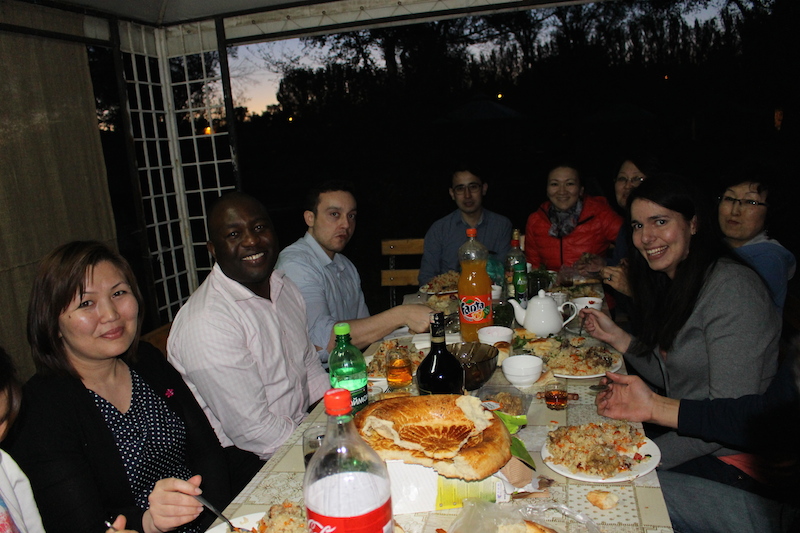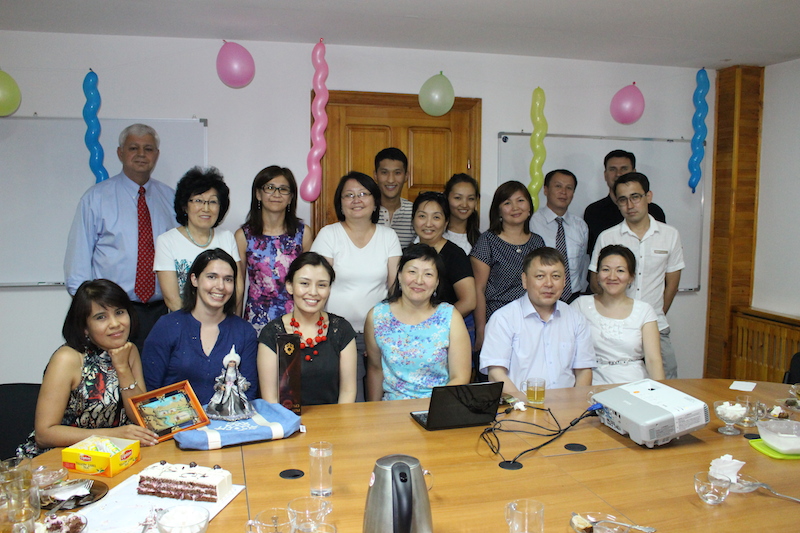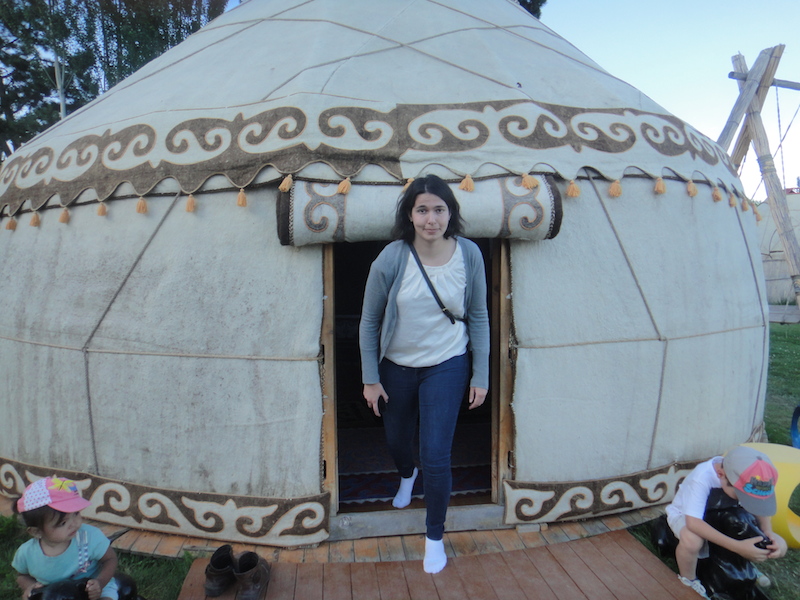Reflections on Bishkek
I’m back in the U.S. and experiencing some culture shock. I have to remind myself to drink water from the tap, count on toilet paper in public bathrooms, and trust that cars will stay on the correct side of the road. I also have to get used to fitting in when I walk down the street. The greatest change is the lack of a language barrier. Life sure is easier when everyone around me speaks English. As I go through this time of transition, I am able to process my experience by telling stories to friends and family, but I know it will take time. One problem is that most people lack the context to fully understand my experiences. It’s one thing to say, “I saw some corruption and bribery among the police.” It’s quite different to get pulled over in a taxi and to see my driver negotiate a fee, or to duck my head when I passed by police officers. Though I’ve been through this process before, it continues to be one of the most difficult parts of travel.
Another difficult part of travel is saying goodbye to friends. Before I left for Bishkek, someone told me that in this line of work, it feels like every time you say “Hello,” you are really saying, “Goodbye,” something I did not quite understand until I found myself saying “goodbye” after what seemed like no time at all. My eleven weeks went by far too quickly. The locals and expats were incredibly kind to me from the start, and I will miss our daily lunches together, lively meetings, discussions about politics and culture, and spur-of-the-moment adventures.
Upon my return, I have been asked many times about Russia and Ukraine. There is no easy answer to give as to how all Kyrgyz people feel about Russia, Putin, the Soviet Union, etc. I had many conversations about these topics, and the most I can say in this short space is that there are many people alive today who lived in the Soviet Union, and that memory has significant influence on their current opinions. They remember free healthcare and education; new housing and roads; fierce pride in their government and leadership. They also remember bread lines and winters without coats; massacres of their leaders and dependence on Russia; totalitarianism and lack of self-determination. These memories are at war with each other in a sense. When I looked around and saw potholes the government was too poor to fix, I understood why the Soviet Union’s infrastructure projects garnered so much goodwill. When I saw children in the streets during the day because the schools lack the capacity to teach them for more than half the day, I understood the high value of free education. When I saw the construction projects carried out by Chinese and Turkish workers to the benefit of China and Turkey, I understood the reason Kyrgyz citizens preferred when the Soviets, rather than the highest bidder, determined their nation’s fate. It’s an issue complicated by poverty, corruption, and complex history. While it is easy for me to say it would be detrimental to the world and to Kyrgyzstan if Russia were to regain control of the CIS (former Soviet Union) countries, I understand why so many people are still loyal to Russia and would prefer dependence to their current state. Democracy does not always feel like freedom when the shadow of the Soviet Union hangs overhead and looks like the only way to escape perpetual political and economic instability.
I’d like to thank everyone who read this blog throughout the summer or after my return. It has been a great way to process and reflect on my experiences throughout the summer. It was a wonderful summer and I’m grateful for the opportunity I had to live and work is such a beautiful and interesting city. If you have any questions regarding this blog, please feel free to e-mail me at afcampbell@email.wm.edu.
Dosvedanya!
Final pictures: Picnic with co-workers my first week, going away party for me my last week, and me walking out of a yurt (metaphorically leaving the country by exiting the national symbol)


